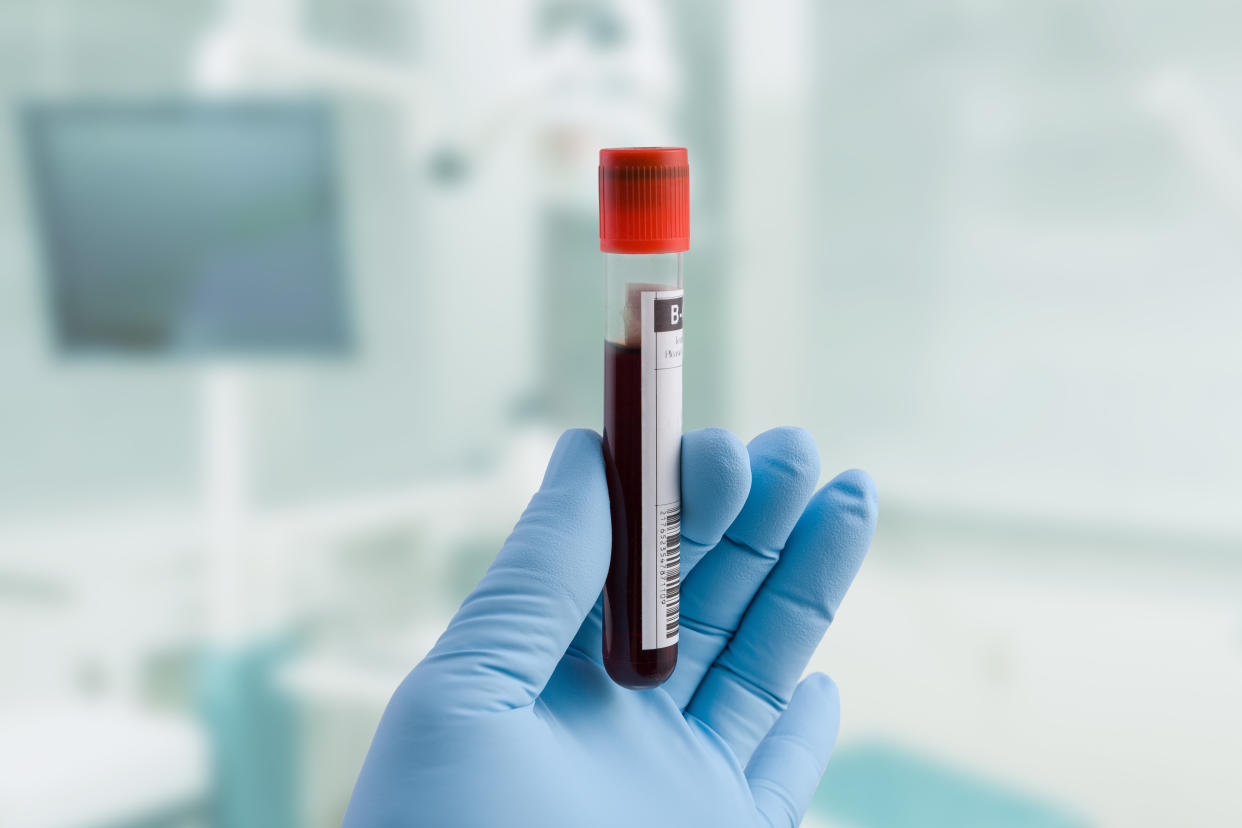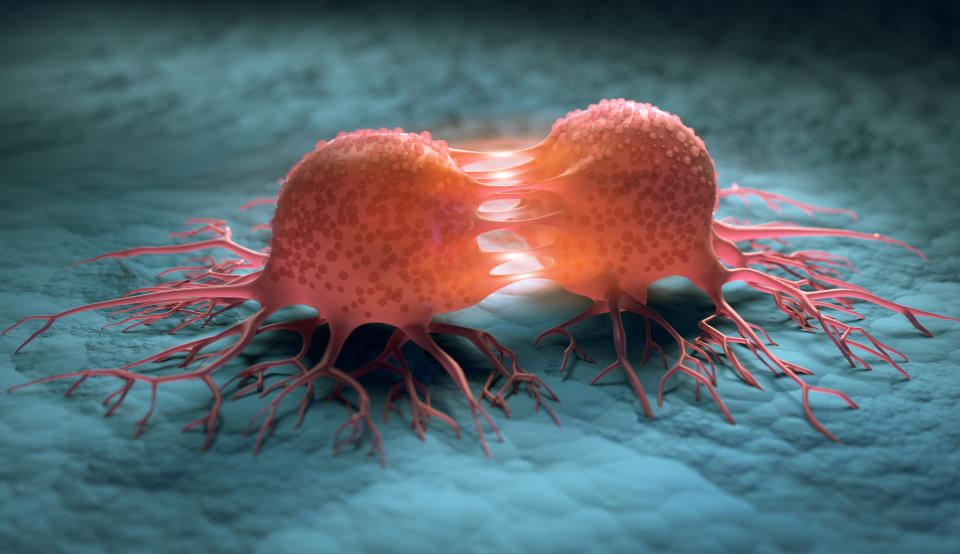Blood test could diagnose cancer years before symptoms emerge

A blood test could diagnose cancer years before signs of the disease emerge, research suggests.
Early detection maximises a patient’s hopes of survival, but symptoms can often be mild, vague or even non-existent.
To help spot more cases, scientists from Fudan University in Shanghai collected blood samples from hundreds of seemingly healthy people.
By picking up on tumour “signatures” in the bloodstream, the test detected five types of cancer in 95% of the participants who went on to develop the disease without any symptoms up to four years later.
Read more: Breast cancer cells could one day be manipulated to help treat tumours
While further studies are required, the scientists hope the blood test – called PanSeer – will one day be a “front-line screening”, like smears or mammograms.
One in two people born after 1960 in the UK will statistically develop cancer in their life.
In the US, one in two males and one in three females alive today are expected to eventually be diagnosed.
Spotting the disease early may enable doctors to remove it surgically or prescribe relatively mild drugs, while treatment options could be limited or more severe as it advances.

National cancer screening programmes are restricted to cervical smears, mammograms and colonoscopies.
To help catch the disease early, the Fudan scientists looked at participants of the Taizhou Longitudinal Study, who provided blood samples for long-term storage.
Read more: Coronavirus could cause 35,000 'extra' cancer deaths
PanSeer looked for any “circulating tumour DNA methylation”, which has previously been shown to be a “promising cancer biomarker”.
Methylation occurs when a substance called a “methyl group” is added to another molecule.
When this occurs within tumour-suppressing genes, they can be “silenced”, triggering uncontrolled malignant growth.
Out of 605 asymptomatic participants, 191 were diagnosed with stomach, oesophageal, colorectal, lung or liver cancer four years later. Additional analysis was also carried out on 223 cancer patients.
Results, published in the journal Nature Communications, revealed PanSeer detected five common types of cancer in 88% of the patients after they were diagnosed.
It correctly picked up on non-cancer cases 96% of the time.
PanSeer also detected the disease in 95% of the asymptomatic participants who were later diagnosed, although the scientists stressed further studies are required to confirm this.
Nevertheless, they believe their results “demonstrate cancer can be non-invasively detected up to four years before current standard of care”.
“What we showed is: up to four years before these people walk into the hospital, there are already signatures in their blood that show they have cancer,” said study author Professor Kun Zhang from the University of California, San Diego, according to The Jerusalem Post. “That’s never been done before.”
Read more: Why naked mole rats are immune to cancer
Unlike other attempts to create a test via methylation, PanSeer reportedly only requires a small tube of blood.
It also has the potential to detect the disease “regardless of the tissue-of-origin”.
“We therefore envision a clinical context where PanSeer could be used as a first-line screen,” wrote the scientists.
“Any patient testing positive on PanSeer would then undergo a more expensive reflex blood test and/or follow-up imaging to allow tissue of origin mapping.”
Scans or biopsies could then confirm the disease, they added.

